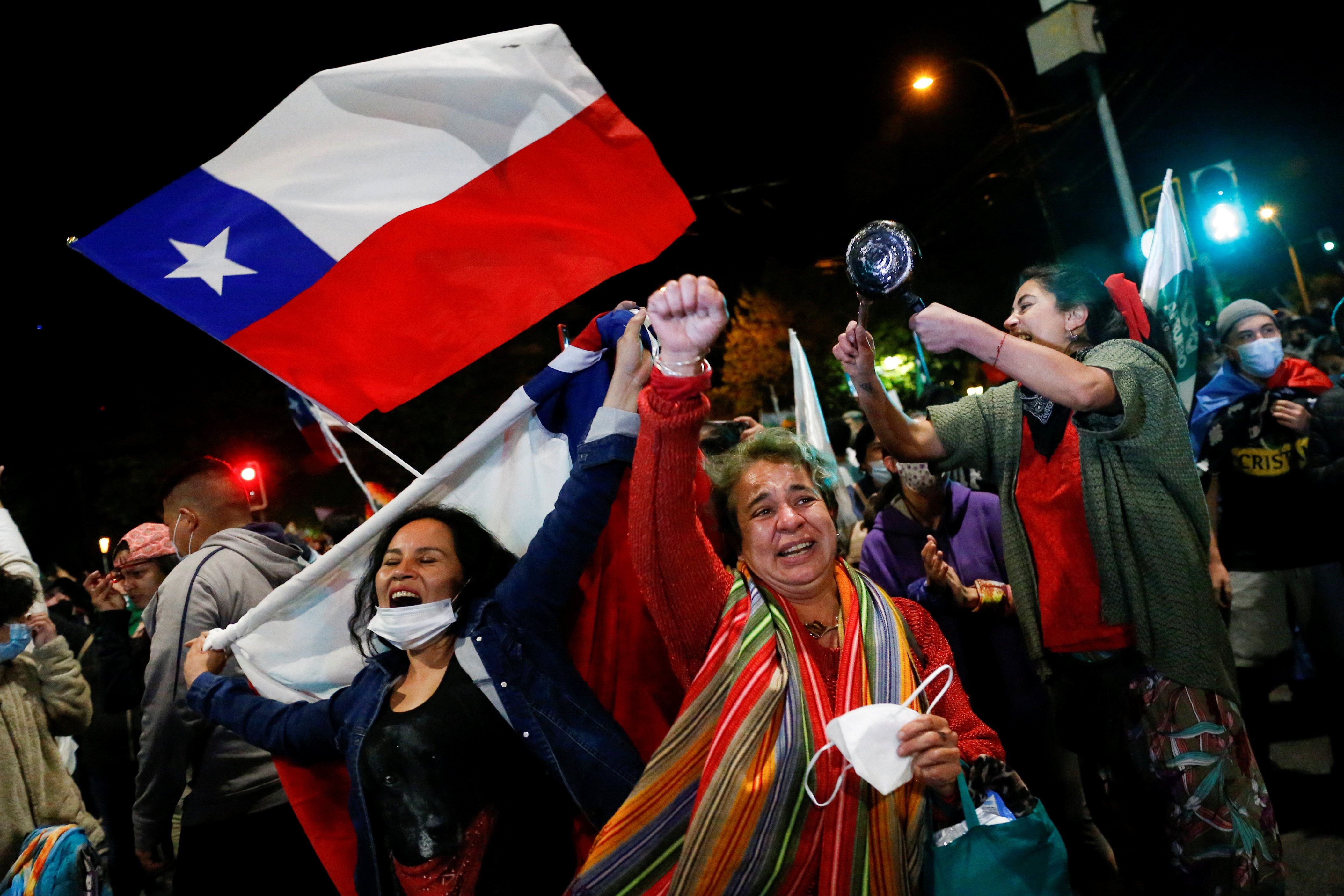October 26, 2020
In a national referendum on Sunday, Chileans overwhelmingly voted in favor of a new constitution. But, why are people in this oasis of political stability and steady economic growth in South America willing to undo the bedrock of the system that has allowed Chile to prosper for so long?
The back story. The current charter dates from forty years ago, when Chile was still ruled by despot General Augusto Pinochet. It was approved in a 1980 national plebiscite which the opposition says was rigged.
Drafted largely by US-educated Chilean neoliberal economists, the Pinochet-era constitution gave a huge role to the private sector in state affairs. Schools, pensions and healthcare were all partially privatized. Chile soon became the most business-friendly South American nation, and its accumulated GDP expanded by an astounding 800 percent from 1990 to 2018.
However, the 1980 charter largely concentrated power in the hands of Santiago's political and business elite, who prospered handsomely while the rest of the country got left behind. Over time, the stark disparity bred strong resentment among working-class Chileans fed up with substandard public healthcare and education, students who can't afford rising tuition fees, the elderly who barely get by on meager public pensions, and indigenous people, who account for 9 percent of the population yet have no cultural or land rights.
The four-cent spark for it all. A year ago, the residents of Santiago took to the streets to reject a $0.04 fare hike for the capital's metro rail system. It was an explosion of anger that caught conservative President Sebastián Piñera by surprise. One of the main demands of the marches — some of which turned violent — was a new constitution.
Piñera, backed into a corner, agreed to hold a referendum, and a year later, three quarters of Chileans voted "yes" to rewriting the country's charter. They also supported electing a constituent assembly in April, which will set to work on a draft that could be ready for popular approval by 2022.
The region is watching. For decades Chile has been an outlier in South America, boasting political stability and steady economic growth in a region long mired in conflict and economic crises. But now that this unequal prosperity has, ultimately, come at a clear political cost, the country's next steps will be closely scrutinized.
Proponents of the referendum envision a new charter that will enshrine more basic rights for all Chileans (especially free higher education and healthcare, as well as affordable housing and transportation), limit the role of the private sector, and expand public welfare to create a more equal society. They argue that while Chile's economy has been cruising for decades, growth has not trickled down to the majority of the people. (In 2018, the income inequality gap between the top and bottom 10 percent was 65 percent higher than the average among the 37 OECD member countries — and that was before COVID-19.)
Although the reforms enjoy widespread support among Chileans, opponents say that implementing a robust social safety net could stifle the country's economic prospects, and open up Chile to the political and economic upheavals that have plagued neighbors like Argentina.
Looking ahead. After decades as a regional model for political stability and economic growth, Chile has discovered it can no longer maintain both. With such high stakes, will the new constitution will help the country's leaders find ways to maintain economic success while ensuring greater equity for the 99 percent, or will this end up being a permanent tradeoff?
More For You
Most Popular
With the US leading production and China driving new reactor development, Bank of America breaks down the who, what, where, when, and why behind nuclear’s return. Stay ahead of global energy trends with Bank of America Institute.
Chris, an Army veteran, started his Walmart journey over 25 years ago as an hourly associate. Today, he manages a Distribution Center and serves as a mentor, helping others navigate their own paths to success. At Walmart, associates have the opportunity to take advantage of the pathways, perks, and pay that come with the job — with or without a college degree. In fact, more than 75% of Walmart management started as hourly associates. Learn more about how over 130,000 associates were promoted into roles of greater responsibility and higher pay in FY25.
Last week, at the Munich Security Conference, a group of global technology providers, including Microsoft, announced the Trusted Tech Alliance — committed to shared, verifiable principles for trusted, transparent, and resilient technology across borders. At a moment of economic volatility and zero-sum technological competition, countries and customers are demanding greater accountability from technology providers. The Alliance addresses this by bringing together companies from across Africa, Asia, Europe, and North America around shared commitments: transparent governance, secure development practices, supply chain oversight, open digital ecosystem, and respect for the rule of law — ensuring the benefits of emerging technologies strengthen public trust while driving job creation and economic growth. Explore the Trusted Tech Alliance here.
© 2025 GZERO Media. All Rights Reserved | A Eurasia Group media company.
